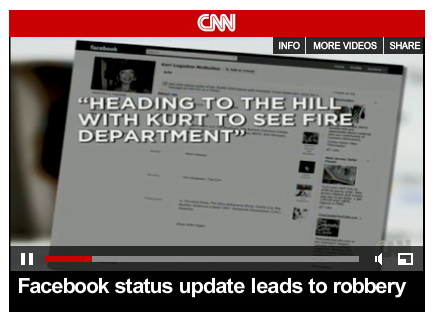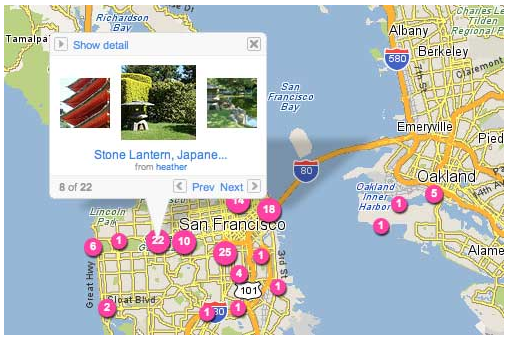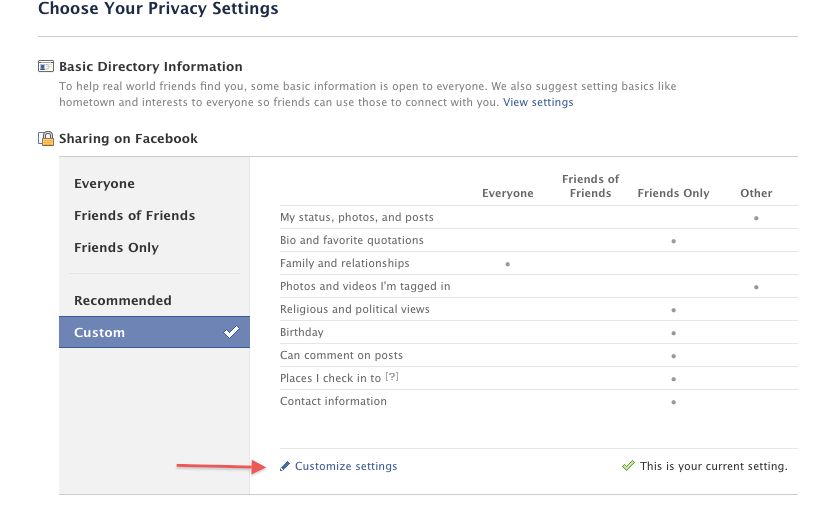Home | Solutions Blog | Social Networking Expert
Posts tagged "Social Networking Expert"
A report was recently published claiming that nearly 100,000 Facebook apps have been leaking access codes belonging to millions of users’ profiles. Symantec released the report and said that an app security flaw may have given apps and other third parties access to users’ profiles. Facebook maintains that they have no evidence of this occurring.
In their report, Symantec wrote:
We estimate that as of April 2011, close to 100,000 applications were enabling this leakage. We estimate that over the years, hundreds of thousands of applications may have inadvertently leaked millions of access tokens to third parties.
These “access tokens” help apps interact with your profile.They are most often used to post updates from the application to your wall. When you add the applications to your profile you, as the Facebook user, is giving the apps access to your information by accepting their conditions. According to the investigation, these tokens were included in URLs sent to the application host and were then sent to advertisers and analytics platforms. If the recipient recognized the codes (meaning they have to be qualified to read and write HTML code), they could gain access to the user’s wall’s and profile.
Posted in Online Privacy by Identity Theft Speaker John Sileo.
Tags: "Facebook Speaker", Facebook, Facebook apps, Facebook Safety, Facebook Security, John Sileo, Online/Social Media Privacy, Social Media Security, social networking, Social Networking Expert, Social Networking Speaker
At this point, we are all pretty used to the classic Nigerian Scam. Someone who is recently wealthy needs your help to gain access to the funds. They will let you keep $1 million if you will simply send them your bank account number so he can transfer $30 million to you. Its a dream come true to most!
What happens when that same scam is used on Facebook by one of your friends, by someone you trust? The results can be disastrous. One woman was scammed out of $366,000 because she felt sorry for the scammer’s sob story. The woman contacted the local authorities after realizing she had been conned by her Facebook “friend”. Police arrested six male suspects in Kepong, all allegedly connected to the Facebook scam: two Nigerians, two Bangladeshis, and two Malaysians. Investigators only managed to recover $5,000 in cash of the victim’s money, although they also seized 18 ATM cards, seven cell phones, and a laptop.
Posted in Cyber Data Security, Online Privacy by Identity Theft Speaker John Sileo.
Tags: Facebook, Facebook Safety, Facebook Scams, Identity Theft Speaker, John Sileo, Nigerian Scams, social networking, Social Networking Expert, Speaker
Geotagging allows others to track your location even though you don’t know it.
With the increased use of Internet-enabled mobile devices such as the Blackberry, Droid and iPhone, geotagging has seen a huge increase in popularity. When social media users take a picture or video and upload it to their page, they are probably transmitting far more data than they think. With the ability to quickly add GPS information to media, smartphones make geotagging a simple task.
So What is Geotagging?
Simply, geotagging is where location or geographical information, such as your GPS coordinates, are added and embedded to different types of media (.jpg, .mov files, etc.). Invisible to the naked eye and the casual observer, geotags are part of the meta-data, or underlying data about the data, that accompanies each file. Examples of meta-data include when the file was created or modified, by whom, using what device and software. This data is often loaded on to your computer along with the original file. Browser plug-ins and certain software programs can reveal the location information to anyone who wants to see it.
Posted in Identity Theft Prevention, Online Privacy by Identity Theft Speaker John Sileo.
Tags: Geo Tag, Geo Tagging, Geotag, Geotagging, GPS, John Sileo, Location Tracing, Location Tracking, Sileo, Social Networking Expert, Spying, Twittervision
According to a Wall Street Journal investigation, Facebook apps are sharing more about you than you think.
The Journal stated in their article, Facebook in Privacy Breach, that many of the most popular applications on the site are transmitting personal information about you and even your friends to third party advertisers and data companies. Apps such as BumperSticker, Marketplace, or Zynga’s Farmville (with over 50 million users) can be sharing your Facebook User ID with these companies. This can give as little information as your name, or as much as your entire Facebook Profile. In some cases, your data is being shared even if you have set your Facebook privacy settings to disallow this type of sharing.
According to the Journal:
Posted in Identity Theft Prevention, Online Privacy by Identity Theft Speaker John Sileo.
Tags: Facebook, facebook privacy, Facebook Privacy Breach, Identity Theft Prevention, John Sileo, Privacy Breach, social networking, Social Networking Expert, Social Networking Privacy, social networking safety, Social Networking Speaker, Speaker, Wall Street Journal

Facebook: Press 2 For Law Enforcement
I received an email last night from a well-known TV anchor wanting my input on a new Facebook issue. He’d read that when calling Facebook Headquarters, the automated attendant comes on and gives you options to reach each department, and the second option was to press 2 for “law enforcement.”
It could seem odd to many, but it’s true. If you call the Facebook Headquarters (650-543-4800) and reach the switchboard, the 1st option is “For customer support, press 1” and the second option is “For Facebook law enforcement, press 2”. Law enforcement comes ahead of business development, marketing, press, and employment verification in the list of options. When you press 2, the next message says: “This message is only for members of law enforcement. Please note that due to a very large volume of incoming calls, the current call back time is two to four business days. For a faster response, please leave your work authorized email address… A member of Facebook’s security team will email in a timely manner.” Which means that Facebook is very busy fielding calls from law enforcement.
Posted in Identity Theft Prevention, Online Privacy by Identity Theft Speaker John Sileo.
Tags: 650-543-4800, Calling Facebook, Facebook, Facebook Phone Number, Facebook Safety, Identity Theft Prevention, Identity Theft Speaker, John Sileo, Online/Social Media Privacy, Privacy, Privacy Expert, social networking, Social Networking Expert
Last week Facebook introduced a new location tracking application called Facebook Places. This gives users the ability to check in with Facebook from their mobile device and update their friends (and even tag their friends) on where they are. What many Facebook users don’t realize is that this tool is currently activated by default, and in order to turn it off, users have to go in and adjust their privacy settings. Until you do that, your friends can check you in to different locations (and you may not even be there!).
Here is the step by step process to disable Facebook Places:
1. Log into your Facebook account, and at the top right drop down menu under Account click Privacy Settings.Once you are in Privacy Settings you will see this screen:
2. Click Custom (if that isn’t your selection already) and then click below 0n Customize Settings.
Posted in Identity Theft Prevention, Online Privacy by Identity Theft Speaker John Sileo.
Tags: facbook, Facebook, Facebook Places, facebook privacy, Facebook Safety, Identity Theft Prevention, Identity Theft Speaker, John Sileo, social networking, Social Networking Expert, Turn Off Facebook Places
According to Cnet.com, security firm Sophos has highlighted yet another scam that’s zipping around Facebook in the form of a third-party application, this one spreading in the form of links claiming to be from friends that encourage members to install a Facebook “dislike button.”
Sophos wrote about the scam in a post on Monday, pointing out that a link to it tends to appear in wall posts that appear to be from the user’s friends (“I just got the Dislike button, so now I can dislike all of your dumb posts lol!!”) but which are actually automated messages from friends who have already been duped. The scam’s purpose is to force users to complete a survey contained in the application, a bit of trickery that has already been known to be perpetuated through scam links like “Justin Bieber trying to flirt” and “Anaconda coughs up a hippo,” the two of which presumably would be enticing to rather different demographics of Facebook users.
Posted in Online Privacy by Identity Theft Speaker John Sileo.
Tags: CNet, Dislike Button, Facebook, Fackbook, Identity Theft Prevention, John Sileo, Like Button, news, Scam, Social Networking Expert
 When you are ‘friends’ with people on Facebook that you are not actually friends with, how do you know whether they have good intentions?
When you are ‘friends’ with people on Facebook that you are not actually friends with, how do you know whether they have good intentions?
A recent segment on CNN discusses the risks that you may be taking while updating your Facebook status. You don’t know who is looking at your private information because it’s truly not private – it’s public. Keri McMullen found this out the hard way after she posted a simple status message that she was going to see a band with her fiancé. It only took the burglars calling the venue to find out what time the show was to let them know when they could break into her home. The burglars showed up 35 minutes after the McMullens left for the concert.
Posted in Identity Theft Prevention, Online Privacy by Identity Theft Speaker John Sileo.
Tags: Burglary, CNN, facbook, Facebook, Facebook Safety, John Sileo, Online Safety, Robbery, Social Netowrking, Social Networking Expert

Facebook has the Population of the Third Largest Country
Wednesday, July 21, 2010 marked a big day for Facebook. CEO and founder Mark Zuckerberg announced in a blog post that the social networking website hit over 500 million users in only 6 years.
If you take a look at the worlds largest countries in terms of population (as of today according to Wikipedia) you find that China is #1 with 1,339,130,000, India is #2 with 1,184,513,000 and #3 is the United States with only 309,944,000. This would mean that if Facebook were a real country with their population of 500,000,000, then it would clearly surpass the USA for the #3 ranking.
Posted in Identity Theft Prevention by Identity Theft Speaker John Sileo.
Tags: facbook, Facebook, facebook privacy, Facebook Safety, Identity Theft Prevention, Identity Theft Speaker, John Sileo, Mark Zuckerberg, social networking, Social Networking Expert


















